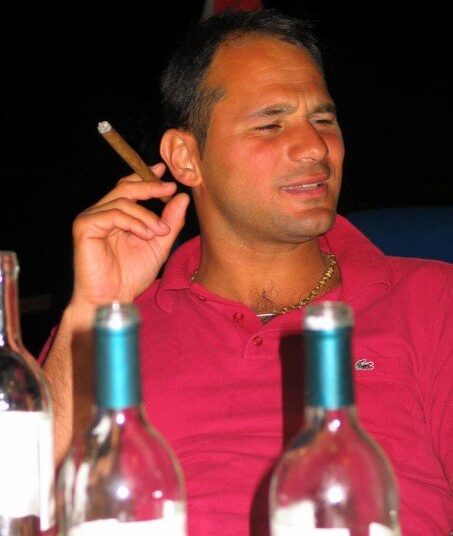Abdullah Bozkurt/Stockholm
Yet another Turkish national and his company were sanctioned last week by US authorities for violating sanctions on Iran, adding to a growing list of individuals and entities that have in the last decade used Turkish territory to undermine sanctions on the mullah regime.
The US Department of the Treasury’s Office of Foreign Assets Control (OFAC) on March 21 sanctioned 52-year-old Turkish national Murat Bükey and his company for violating Iran sanctions as well as multiple US laws.
Bükey owns and operates Ozon Spor ve Hobi Ürünleri A.Ş., also known as Ozon Spor ve Havacılık Ürünleri, which deals in sporting goods and aviation and defense products in Turkey’s western province of Izmir.
According to the sealed indictment delivered by a grand jury in the US District Court for the District of Columbia on May 3, 2018, Bükey and his accomplices procured parts for unmanned aerial vehicles (UAVs) in support of Iran’s UAV and weapons programs for the benefit of Iran’s Ministry of Defense and Armed Forces Logistics (MODAFL), which oversees companies involved in UAV and ballistic missile development.
They were charged with conspiracy, false statements, smuggling, aiding and abetting, money laundering and violations of several US laws including the Arms Export Control Act.
Bükey, son of the late Izmir businessman Ataman Bükey, has several businesses in Turkey, one of which had been declared bankrupt. Ozone Havacılık ve Savunma Sanayi ve Ticaret A.Ş. appears to be a renamed version of his original company, Ozon Spor ve Hobi Ürünleri A. Ş. Both were listed at the same address in a Key Plaza building on Şehitler Street in Izmir’s Konak district.
US indictment of Bükey and his Iranian associate:
He is also a board member in family-owned business Dankim Kimya Ve Temizlik Ürünleri A.Ş., a cleaning and chemical products company that was declared bankrupt by a commercial court in 2019. The bankruptcy was later lifted.
Bükey was accused of facilitating the procurement of various defense-related products for Iranian national Amanallah Paidar and his company, Farazan Industrial Engineering, which acts as a broker for the delivery of sanctioned materials to Iranian state entities.
The now-defunct website of Bükey’s company, accessible only in an archived version through the Wayback machine, shows that it mainly traded in kitesurfing products and RC brand motors. He worked with several municipalities as well as private firms such as Mercedes Benz in promoting kitesurfing. It did not advertise on its website the sale of sophisticated products that it procured from the US and illegally reshipped to Iran.
The investigation into Bükey’s business activities, carried out by the Federal Bureau of Investigation (FBI), revealed private email communications between Bükey and his Iranian accomplice Paidar. The FBI apparently monitored his email to unravel the sanctions-avoidance network.
For example, in an email on April 8, 2012, Paider asked Bükey to acquire a fuel cell test station manufactured by North Carolina-based Scribner Associates, Inc., a leading developer of high-quality instrumentation and software for the electrochemical R&D community. The station can test the efficacy and power of fuel cells that have a number of military and civilian uses, from ballistic missiles, drones and nuclear weapons to electric cars and miniature devices that require portable energy.
Bükey secretly shipped the 850 Multi-Range Fuel Cell Test System manufactured by Scribner Associates, Inc., to Iran:
Scribner has an official representative and product distributor in Ankara, Delta Electronics Trading and Industry Ltd. Bükey communicated with Delta on behalf of his Iranian client without revealing the end-user in Tehran.
Bükey responded to the email with a $52,368 for the fuel cell test station and components and said they could be delivered to Tehran within three to four weeks. On May 14 Paidar confirmed the order with some changes and also asked for a brief training on how to use the system. Bükey responded, “about training that is a big problem if the training will take place in Iran. You know the reasons.” Paidar wrote back that training could be done in Turkey.
In an email dated May 23, 2012 Bükey said: “The company here in Turkey [Delta] will support you in installation and technical information when you receive the goods. As you know we will reexport it to Iran under my responsibility. … However as you know the company in the US will ask my guarantee that the goods are not sold to Iran. Therefore if there is any technical support needed we will sort it out with the Delta in Ankara and my company. The company in Ankara promises to give support however they also don’t know you are in Iran.”
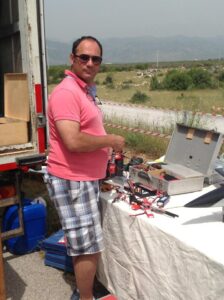
All items requested by Paidar were sold by Scribner to Bükey’s firm Ozon through Scribner’s representative in Ankara. No red flags were raised because Ozon was involved in selling RC motors and kitesurfing products. Neither the US company nor its representative in Ankara was aware that the products they sold would be rerouted to Iran. Moreover, the US firm provided Bükey with a document that warned him about US export controls and secured his agreement that he would not re-export them to any individual or entity that was sanctioned without the approval of US authorities.
Another trove of intercepted emails reveals that Bükey in October 2012 sought to purchase the RAZOR EX BioDetection System from US company BioFire Defense, based in Salt Lake City. The RAZAR EX system, which detects and identifies biological agents in the air, water or ground, is made for field use and was created for first responders and front-line military troops.
On November 2, 2012 he sent an email to Paidar with a quote for $71,140 excluding shipping costs to Tehran. In the end-user agreement he signed and sent to BioFire, Bükey falsely claimed that Turkish company Neon Makina Ltd. In Izmir would use the system for the analysis of hospital wastewater for the purpose of recovery. He also used his family company name Dankim in the application to make the order legitimate and not raise red flags in the US.
Information sheet on the RAZOR EX BioDetection System:
Since the system is also used for military purposes and is listed as such by the US Department of State’s Directorate of Defense Trade Controls (DDTC) under the Arms Export Control Act, BioFire applied to the State Department to obtain an export license and listed Bükey as the buyer and Neon Makina as the end-user. The request was approved in February. However, on May 6, 2013 the license was revoked after the US Embassy in Ankara conducted a pre-shipment screening including an interview with Bükey and suspected foul play. As a result, BioFire never shipped the item and refunded the down payment to Bükey.
As in the case of other Iran sanction-avoidance schemes, the US knew it could not secure the extradition of individuals from Turkey under the government of President Recep Tayyip Erdoğan, which aided and abetted a number of Turkish and Iranian nationals using Turkish territory and Turkish financial and industrial facilities to circumvent sanctions on Iran.
The arrest warrant issued by US authorities for Bükey was executed when he was in Spain in September 2021. He was extradited to the US in July 2022 under a Spanish court ruling and pleaded guilty to conspiring to violate US laws in December 2022. On March 20, 2023 he was sentenced in the US District Court for the District of Columbia to 28 months in prison.
This is not the first time Turkish nationals were caught by US authorities in schemes that undermined the sanctions regime with the help of the Erdoğan government. There have been other cases in recent years.
In one case Reşit Tavan, the owner of several shell companies in Turkey, was indicted on June 27, 2017 by US federal prosecutors for conspiring to defraud the US and smuggle American-made products to Iran. The indictment alleged that marine equipment such as outboard motors, generators and propulsion systems that were manufactured in Wisconsin were shipped first to Turkey and then to Iran without the knowledge of the manufacturers and without a license from the US government.
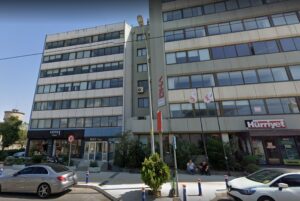
The US issued an international arrest warrant for Tavan, but the Erdoğan government refused to execute the warrant. He was arrested on June 8, 2017 when he was going through customs in Romania and unsuccessfully fought extradition. The Turkish Embassy in Bucharest lobbied to get him back to safety in Turkey, helped him hire a former justice minister of Romania as his defense attorney and even managed to get a ruling against extradition in the court of first instance. But the appeals court overruled the judgment and cleared the way for his extradition to the US. On December 11, 2017 he was formally arrested at his arraignment in federal court in Milwaukee after Romanian authorities turned him over to the US, balking at the Turkish government’s request.
On April 2, 2019, faced with overwhelming evidence and the prospect of a long prison sentence, Tavan cut a deal with federal prosecutors and pleaded guilty to conspiracy to violate US laws, saving himself from the lengthy sentence he would most likely have received on the additional charges. The Federal District Court in Milwaukee sentenced him to 28 months’ imprisonment on August 29, 2019. US District Judge Pamela Pepper ruled to release and deport him to Turkey given the fact that he had already spent 20 months in the Waukesha County Jail. He is now back in business in Turkey.
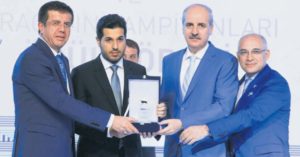
A damning revelation was made when a corruption case involving Turkish-Iranian national Reza Zarrab, who bribed senior government officials including cabinet ministers and cultivated personal ties with Erdoğan, was made public on December 17, 2013. Dozens of suspects including Zarrab were detained and later arrested for violating several Turkish laws.
Erdoğan, who was incriminated in the probe, stepped in to derail the prosecution and helped release all the suspects after he orchestrated the removal of the lead prosecutors and investigators in the case. All suspects including Zarrab were later acquitted by new judges who were brought in to oversee the case by the Erdoğan government.
However, Zarrab was arrested by the FBI in Miami in 2016 and charged by the US Attorney for the Southern District of New York with engaging in hundreds of millions of dollars’ worth of transactions on behalf of the Iranian government, money laundering and bank fraud. He made a plea deal with prosecutors and cooperated in a US federal case that exposed the role of Erdoğan, who had instructed Turkish state banks to participate in the multi-billion dollar scheme in exchange for kickbacks.
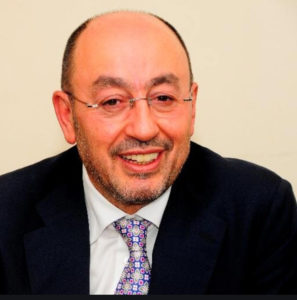
At the end of the trial, Mehmet Hakan Atilla, the deputy general manager of state lender Halkbank, was convicted and served time before returning to Turkey. The co-conspirators who were indicted by US federal prosecutors, including the former economy minister in the Erdoğan cabinet, remain beyond reach.
In December 2022 the US sanctioned Turkish businessman Sıtkı Ayan, a close associate of President Erdoğan, for being a facilitator for oil sales and money laundering schemes on behalf of Iran’s Revolutionary Guard Corps (IRGC) Quds Force. Ayan was a suspect in a Quds Force probe conducted between 2011 and 2014. However Erdoğan killed the investigation in February 2014 and saved Ayan and dozens of other Turkish and Iranian suspects from criminal charges.

